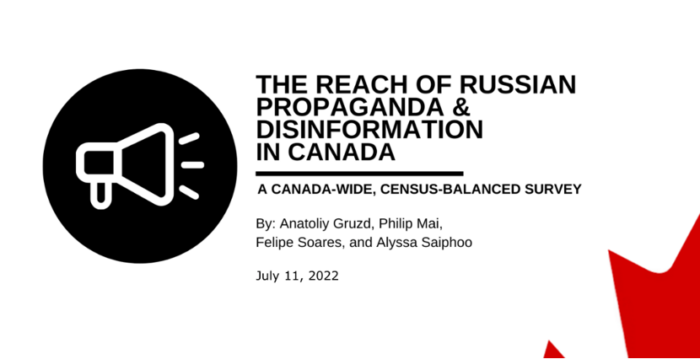The Canadian Centre for Cyber Security (Cyber Centre) has published it’s National Cyber Threat Assessment 2020. Although more focused on cyber threats such as hacking and theft of personal information, the report does assess the threat to Canadians posed by foreign influence operations:
A growing number of states have built and deployed programs dedicated to undertaking online influence as part of their daily business. Adversaries use online influence campaigns to attempt to change civil discourse, policymakers’ choices, government relationships, and the reputation of politicians and countries both nationally and globally. They try to delegitimize the concept of democracy and other values such as human rights and liberty, which may run contrary to their own ideological views. They also try to exacerbate existing friction in democratic societies around various divisive social, political, and economic issues. While online foreign influence activities tend to increase around elections, these ongoing campaigns have broadened in scope since 2018, expanding to react and adapt to current events, shifting their content strategies around trending news stories and popular political issues. As predicted in NCTA 2018, Canadians have continued to be the subject of online foreign influence activity. For instance, we have observed recent campaigns focus their content around COVID-19 and government responses to the pandemic.
Read the report here.
In October. the Global Influence Operations Report (GIOR) posted several times on the US Department of Homeland Security’s October 2020 “Homeland Threat Assessment.”









COMMENTS
Comments are closed here.